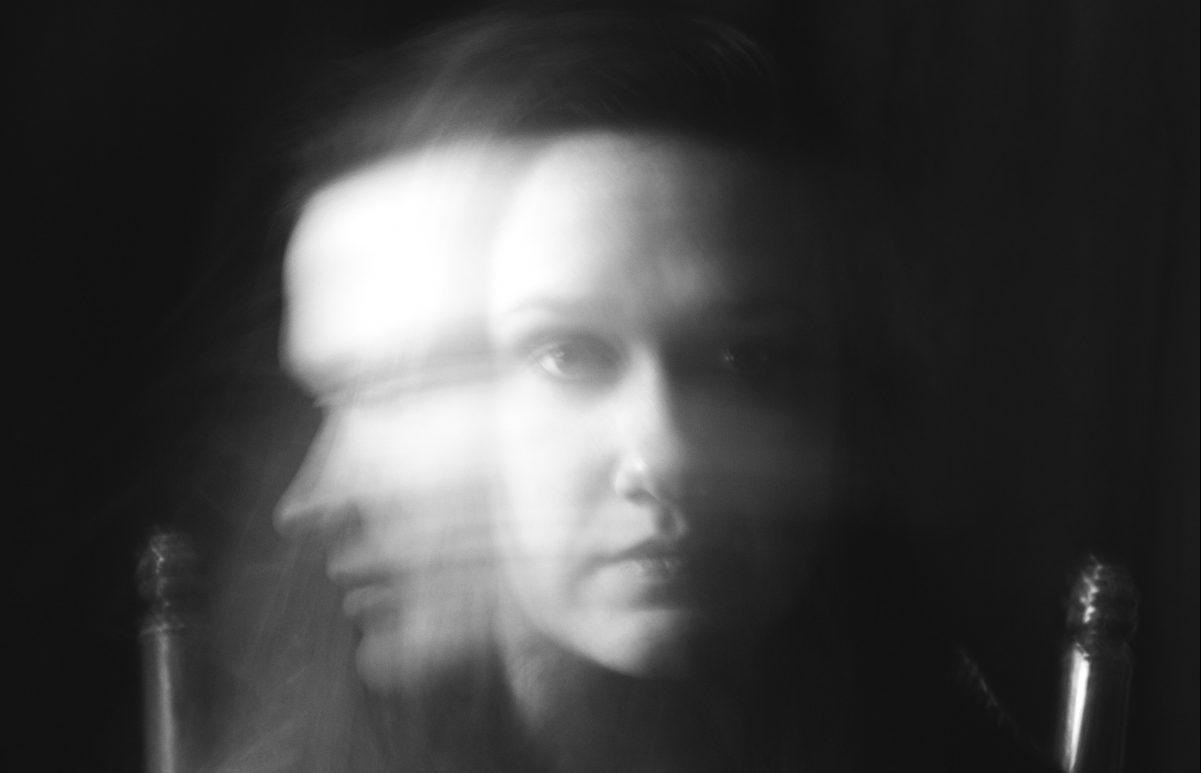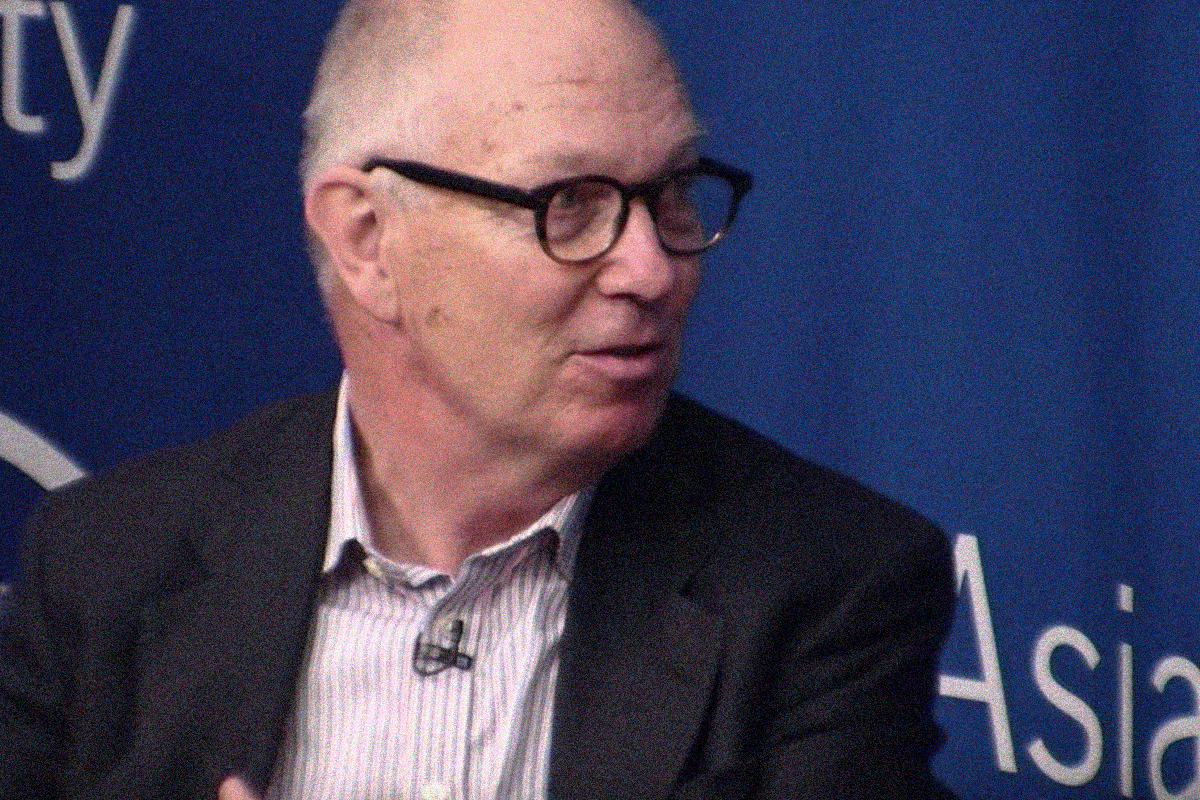Art and Culture
Why I'm Uneasy With the #MeToo Movement
An assumption of personal responsibility is the sine qua non of independence and autonomy in a free society.

For many women, the breaking of the Weinstein scandal has been a moment of catharsis and deferred justice. In the wake of the appalling revelations of rape and abuse, women were invited to detail their own experiences of sexual assault on social media under the #MeToo hashtag, and the subsequent outpouring of testimony was held up by some campaigners as proof that America is indeed a culture in which women are routinely victimized, and men are routinely complicit. Celebrity journalists and Hollywood stars have been named and shamed; denunciations have proliferated and shamefaced apologies have been offered; unsubstantiated spreadsheets listing alleged offenders have been circulated and leaked; and glittering careers and reputations are being reduced to powder overnight.
But as someone who has experienced what many would perceive to be a sexual assault, the momentum of the #MeToo movement makes me uneasy. Before I explain why, I should tell my story and the lessons I learned along the way. Those lessons were painful and the price I paid was steep, but I emerged from the experience stronger and wiser than before.
I set off for college at 18, eager for new experiences. When I completed my undergraduate degree four years later, I felt I had reached a new level of personal maturity and autonomy. This sense of myself was further confirmed when I went on to pursue a post-graduate degree the following year. This complacency was forever shaken by the events of a single evening in my mid-twenties.
That evening, I had embarked on a night out with friends dressed in what might be described as a ‘racy’ or revealing outfit. After a long week of study, I wanted to unwind and have fun, and as we frolicked from one bar to the next, I drank, danced, and flirted without a care. By chance, I ran into an old friend from college and he and I spent the rest of the evening drinking together, reminiscing about old times on Greek Row, and exchanging stories of our adventures since.
As closing time approached, I invited him back to my house and he enthusiastically accepted. Upon arrival, I welcomed him with another generous round of drinks before inviting him to join me in my bedroom. Having spent the evening in crowded, noisy bars, we were now alone in my bed and, without further discussion, we shared a night of unspoken “mutual agreement.”
When I awoke the next morning, the previous evening’s excitement had been replaced by a brutal hangover and a pressing sense of regret. The dimly remembered decisions I had made the previous night while intoxicated no longer felt like my own. Struggling to recollect what had happened and sick from the hangover, I wondered if I might be coming down with the flu. Ashamed by the memory of my drunken stupor, I shuffled my companion out of the front door with no mention of the previous night’s events. As the day progressed, I grew more nauseous not less, and developed what felt like a fever. Supposing that it was either a case of alcohol poisoning or some garden variety illness or other, I tried not to think about it.

The next day I felt worse. And I had developed new symptoms. I vaguely recalled that our sex two nights previously had been unprotected. On the blithe assumption that my birth control would take care of any concerns, I had not insisted on it. But now I had a feeling that a visit to my gynaecologist would be a prudent move. Upon arrival, I was handed paperwork to complete, which asked questions such as “Do you have any sexually transmitted diseases?” and “Are you pregnant?” I knew I could definitely check no for the latter. As for the former, my last visit to the gynecologist had resulted in a clean bill of health and I had not had intercourse since. So, I checked ‘no’ in response to that, too.
As I anxiously awaited the results of my tests, I went over my actions that night in an attempt to reorganize my fragmentary memories into a coherent series of events. At last, the doctor reappeared and proceeded with my diagnosis. Listening to her, I felt my stomach churn. She told me that I had contracted herpes simplex virus type 2 and that this was incurable. Distressed, I asked her to repeat the test. Only 15 percent of Americans between the ages of 14 and 49 are estimated to carry HSV-2. What were the chances? She asked whether or not I was aware of my partner’s condition and I said no. I did not recall noticing any symptoms on him, but it is not uncommon for people infected with genital herpes not to exhibit any.
Then she asked if the intercourse had been consensual. Had I verbally consented to sex, I wondered? The answer was a resounding no. Perhaps I had been too drunk to give meaningful consent, and what had seemed consensual at the time was in fact something more sinister—predatory opportunism or even assault. For a moment, I found myself tempted by an escape into victimhood. Certainly, the emotional burden would be easier to bear if the fault could be projected elsewhere.
But, try as I might, I could not persuade myself that this was a good-faith account of what had actually happened. Self-examination forced me to acknowledge that both my partner and I shared responsibility for the events of that night, and that martyrdom would be a cowardly and dishonest excuse for my own poor judgment. And what if my revisionism were to be uncovered? The consequences didn’t bear thinking about. Not only personal disgrace, but justifiable accusations that I had appropriated and devalued the ordeals of those who had been drugged, overpowered, molested, or otherwise unambiguously sexually assaulted. I could not in good conscience adopt a narrative of convenience that might make it harder for authentic victims of sexual violence to be believed were my duplicity to be exposed.
And who was I to accuse someone of a crime when I knew perfectly well that it was partly my own recklessness that had placed me in jeopardy? I had willingly embraced a degree of risk in my pursuit of pleasure. I had drunk to excess, I had invited a man I had just met back to my home, and I had willingly engaged in unprotected sex. Eight or nine times out of ten, the only consequences would have been fleeting regrets and a headache. But I was old enough to know that I might be unlucky. And so I was.
As I struggled to come to terms with my diagnosis and grieve the loss of my health, I experienced a range of confused emotions—anger; denial; resentment; self-pity. For a while, I cultivated hatred towards men, and even hostility towards my parents, who I irrationally blamed for failing to do enough to warn and protect me. But in the end, such excuses were just an abdication of the autonomy in which I had previously taken such pride. And so I assumed responsibility for my choices that night and resolved not to blame others for my own mistakes.
My recovery was a long and painful process. However, it was not made any easier by what I read online. Feminist and activist sites set up to counsel and advise victims of sexual assault seemed perversely determined to convince me that I had in fact been assaulted, and sternly warned against any assumption of personal responsibility which they invariably describe as “victim-blaming.” Instead, they offered trite slogans such as “Drinking is not a crime—rape is” and “Don’t tell your daughter not to go out, tell your son to behave properly” and “Teach men to respect women.”
A representative example of this kind of advice can be found in the Myths and Facts section of Sexual Trauma Services (STSM) advocacy website, which informs browsers, inter alia:
Myth: A person can avoid being raped as long as he or she follows certain guidelines, such as acting or dressing conservatively, not going out at night alone, and refraining from drinking alcohol or doing drugs.
Fact: Rape can happen to anyone at any time, no matter how cautious they are. Advising people to follow “guidelines” to avoid being sexually assaulted puts the responsibility of the assault on the victim. Instead, it is the responsibility of the assailant to avoid sexually assaulting others, and as a community, it is our responsibility to understand and promote the fact that sexual assault is never trivial, excusable or deserved, and it is never the victim’s fault.
This is surely well-intended and meant to reassure those seeking guidance that they will not be judged. But such absolutism is also unhelpful and, in its construction of a straw man, not a little dishonest. America is not theocratic Iran. Who in the modern West can be heard to claim that female modesty and temperance will eliminate rape entirely? More importantly, STSM’s advice struck me as inconsistent with normal human intuitions on the elementary point of personal accountability. Even an abnormally unreflective person will be able to come up with examples of occasions when their own foolish decisions have contributed to their misfortune. In a liberal society, we are free to make our own choices. But when those choices predictably increase personal vulnerability or risk, we are usually expected to take moral responsibility for shouldering the possible consequences of that risk.

I might refuse to wear a seatbelt on the basis that I am particularly fastidious about road safety. But if another less cautious driver were to drive his vehicle into mine, most reasonable people would accept that I bear responsibility for any injuries I would not have sustained had I taken the sensible precaution of wearing a safety belt.
Alternatively, I may decide to leave my child unattended while I run to the shop, calculating that the risk of her being snatched is vanishingly small. But if my child is then abducted or injures herself in my absence, most reasonable people would not hesitate to describe my negligence as blameworthy.
In neither circumstance does “Don’t tell me to wear a safety belt, tell others to drive carefully” or “Don’t tell children not to talk to strangers, tell strangers not to abduct children” sound remotely like sensible or wise advice. We recognize that, as adults and moral agents, we have a duty to look after own well-being and the well-being of dependents who cannot look out for themselves.
Why should sex be any different? And is it fair to say that things like environment, dress, and alcohol consumption increase personal vulnerability and risk? Or is this simply, as the websites I encountered insisted, just a misogynistic myth intended to restrict female freedom?
In the modern West, we rightly accept that men and women ought to be able to dress as they please without being subject to moral opprobrium. But that doesn’t alter the fact that revealing attire will attract the attention of the opposite sex, and that it is designed and (usually) worn for precisely this purpose. Because this effect is indiscriminate, a foreseeable consequence is that it will attract both wanted and unwanted attention.
Copious research has been undertaken into the psychology of dress and its effect on both genders. Investigations into the “red dress effect” and innumerable other studies on the effects of suggestive attire are well-documented in the psychological literature. From flowers to various species of birds and mammals, the effect of physical appearance on sexual attraction has been firmly established.
But when it comes to humans, we are asked simply to disregard elemental forces of sexual selection. Cultural and ideological narratives are used to disfigure biological truths, rendering them as “sexist,” “predatory,” or “misogynistic.” Forgoing analysis of sexual selection does our understanding of human behavior an injustice. Without taking into account the complexity of our species—part rational and deliberative, part imperfectly evolved mammal—we misunderstand the various ways in which physical appearance plays a role in sexual motivation and behavior.
The various ways in which alcohol can increase personal vulnerability and risk ought to be familiar enough to most people that they require no appeal to the equally abundant academic literature on the topic. Alcohol consumption reliably compromises threat perception, awareness of surroundings, reaction time, impulse control, and sexual inhibitions. In other words, it compromises the ability of both sexes to make sound and informed judgments. It ought to be no surprise to discover that most sexual assaults occur when the victim and/or the perpetrator are under its influence.
A paper by Abbey et al. posted on the website of the National Institute on Alcohol Abuse and Alcoholism confirms that:
Laboratory research that examines the processes through which alcohol exacerbates miscommunication between women and men and influences the cognitive and affective responses of women and men to sexual disagreements can help guide prevention programs.
Bars, meanwhile, exist to fulfil one function: to provide alcohol to their patrons. And while people may enjoy the bar scene for any number of reasons, studies have consistently found socializing and sex to be among the most popular. A research study by Reingle et al. (2009) unsurprisingly concluded that:
From a developmental perspective, nightclubbing appears to assist young adults with establishing and maintaining social networks, romantic and sexual relationships, and collegiate acculturation.
Anyone who has stepped into a bar is surely aware of these motivational factors, even if they are not one’s own. And while it is true that women have lower sex drives than men on average, since men and women share the same hormones (albeit in different levels), alcohol has much the same effect on the inhibitions and sex drive of both. As a 1986 study by Harvey and Beckman concluded:
61.2% of the women reported that they desire sexual activity most when drinking as compared to not drinking, but more women related increased sexual desire to drinking a little (44.8%) than to drinking a lot (16.4%). 64.2% indicated that alcohol did not make a difference in the frequency of sexual activity, but more women stated that they were more likely to engage in sexual activity with alcohol (22.4%) than without alcohol (13.4%).
The observations about dress, environment, and alcohol discussed above should not be construed as an attempt to pass moral judgment of any kind, still less as an attempt to absolve rapists of responsibility for their crimes. Men and women should of course be at liberty to drink what they like, wear what they like, and frequent whichever drinking establishments they like in the hope of finding a partner or a bit of consequence-free sex, if that is to their taste.
To notice that certain behaviors predictably increase a person’s vulnerability is so obvious as to be banal. But any attempt to ask women to acknowledge the associated risks is routinely described as “rape apologism.” If identifying and acknowledging such behaviors is to become taboo, then how are people supposed to mitigate the risks associated them, or to make informed judgments about whether a particular risk is worth the benefits it affords?
The mistake that campaigners make is to assume that moral responsibility is a zero-sum game. The motorist who collides with my car is just as culpable for his recklessness whether or not I am wearing a seatbelt. But it is precisely because the behavior of others lies beyond my control that I must remain responsible for taking precautions in the interest of self-protection. To insist that women rely entirely upon the goodwill of others for their own safety is not only fantastically irresponsible, it borders on the reprehensible.

Days after my diagnosis, I called my partner from that fateful night to tell him the news and to ask if he had known that he was infected when we slept together. His curt response was to tell me it was nothing to do with him. Was he lying? In denial? Only he knows for sure. I never spoke to him again. Even if he was unaware, that does not absolve him of moral responsibility for his behavior since, having exposed himself to the possibility of infection on some previous occasion, he had not been screened before having unprotected intercourse with me.
But his failure of personal responsibility does nothing to diminish my own. The painful truth is that what happened to me that night was avoidable. Had I not drunk as much as I did, I would not have invited him home. And had I insisted on protected sex, I would not be living with an HSV-2 infection today.
It is not possible to avoid risk altogether. Teetotal women who dress conservatively and scrupulously avoid bars may still be sexually assaulted and raped. And opportunistic, predatory sociopaths will continue to search for vulnerable women, just as a lion stalks weak antelope. But advising people to take sensible precautions to mitigate risk should be no reason for outrage. On the contrary, an assumption of personal responsibility is the sine qua non of independence and autonomy in a free society.
Feminism is supposed to be a movement committed to female liberation and empowerment, and over the years it has done much to advance those goals. Today, Western women are as free as women have ever been at any time in world history. We are free to choose our educational institutions, we are free to pursue a career path of our liking, we are free to marry and love who we want, sleep with whomever we like, and say and think whatever we wish.
But by demanding that women renounce personal responsibility, contemporary feminists and sexual assault activists reduce adults capable of agency and choice to children capable of neither. This is a disempowerment trap, and it was only once I was able to accept responsibility for my own actions that I was able to reclaim my sense of autonomy, repair my shattered self-esteem, and move forward with my life. Instead of embracing a distorted view of the opposite sex, or blaming my upbringing, or surrendering to the passivity of inert victimhood, I emerged from the experience stronger and freer, with a greater sense of self-worth, and a more realistic understanding of the world.
This perspective has not received a hearing in the wake of the Weinstein revelations. Any rational discussion of moral responsibility has been drowned out by the deafening hue and cry about institutional misogyny and structural male oppression and rape culture from those unwilling to admit any ethical distinction between systematic sexual predation and traumatic experiences not unlike my own, in which poor personal choices have contributed to personal sorrow. Instead, everything has been indiscriminately slung together under the #MeToo hashtag’s furious outcry of indignation.
Those who stretch the definition of sexual assault to absolve themselves of responsibility for their own choices, or who wilfully ignore the self-evident facts of human nature whenever they conflict with the false rhetoric of their political doctrines, are doing the cause of women’s safety no favors at all. Chastened and humbled by the life lessons I learned too late, I want no part in it.






